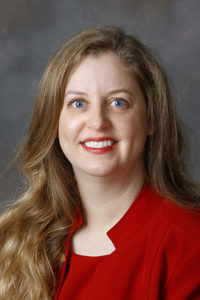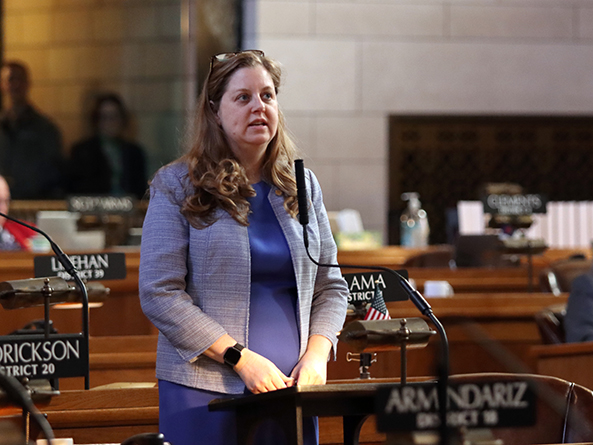Lawmakers expand, advance child care proposal
A bill that seeks to increase access to child care in Nebraska was expanded and given first-round approval March 4.

Under current law, the state Department of Health and Human Services is required to conduct a market rate survey every two years to determine provider reimbursement rates under the Child Care Subsidy Program. The market rate survey is the only approved methodology in Nebraska for determining reimbursement rates and consists of two markets – one comprises Dakota, Douglas, Lancaster and Sarpy counties and the other comprises every other county in the state.
LB904, introduced by Bennington Sen. Wendy DeBoer, would give the department authority to consider a different federally approved methodology to determine child care subsidy reimbursement rates. The bill also would allow the department to create their own model and seek federal approval.
DeBoer said LB904 would give the department discretion to use a method best suited to the state.
“Currently, the department has no ability to use any model but the market rate model,” DeBoer said, “[but] the market rate survey may not have the flexibility to take into consideration the various situations across the state.”
The bill also would require DHHS to provide reimbursement for providers at a rate not less than the 75th percentile of the market rate as determined by the department if they continue using the market rate survey.
A Health and Human Services Committee amendment, adopted 31-0, added the provisions of a bill that seeks to incentivize the creation of on-site child care services in the state’s nursing and assisted living facilities.
LB1178, introduced by Lincoln Sen. Anna Wishart, would create the Intergenerational Care Facility Incentive program to dispense one-time startup grants to provide child care in nursing and assisted living facilities that are certified for Medicare or Medicaid. Under the bill, certified facilities would be eligible for a grant of up to $100,000 to be used for structural updates, outside campus space, equipment and supplies.
The bill would require DHHS to collaborate with a statewide association representing long-term care facilities and other stakeholders to develop the program. Facilities that have been cited for providing a substandard quality of care during their most recent survey would not be eligible for the program.
LB1178 originally stated legislative intent to make a $300,000 one-time General Fund appropriation to DHHS for the pilot program.
Wishart offered an amendment to the committee amendment, adopted 40-0, to change the funding source from the state General Fund to the Medicaid Managed Care Excess Profit Fund.
Blair Sen. Ben Hansen, chairperson of the Health and Human Services Committee, said the Intergenerational Care Facility Incentive program would be a “revolutionary” way to bring together two important parts of the state’s health care system.
“[LB1178 would] not just save costs for the taxpayers, but also improve the lives … of all those involved,” Hansen said.
Sen. Eliot Bostar of Lincoln attempted to add provisions of his LB1416 into the committee amendment as well. The proposal, which he introduced at the request of Gov. Jim Pillen, was considered by the Banking, Commerce and Insurance Committee this session.
LB1416 would create the Child Care Capacity Building and Workforce Act and the Family Child Care Home Grant Program. The provisions would transfer $5 million from the General Fund to a newly created cash fund within the state Department of Economic Development to fund the grant program.
Bostar withdrew his amendment following a challenge regarding the appropriateness of amending a bill into the Health and Human Services Committee amendment that was heard by a different committee.
Following adoption of the committee amendment, senators voted 30-0 to advance LB904 to select file.


